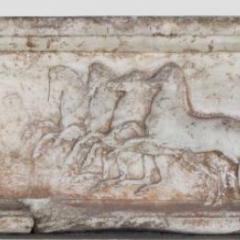History@UQ is delighted to announce the release of Associate Professor Martin Crotty’s new book, The Politics of Veteran Benefits in the Twentieth Century: A Comparative History, co-authored with Neil J Diamant and Mark Edele (Cornell University Press, 2020).
The book begins with an intriguing proposition. Six broad cohorts of soldiers returned from war, and asked their individual governments for assistance. Yet the soldiers from Australia, the United States, China, Russia, Germany and Great Britain would all receive very different responses. This book seeks to trace the government responses to veterans. It brings light to the ways the state might offer both material compensation and a special status, sometimes higher than civilians of the same generation, and how this changed over time and place. The work considers veterans’ issues as across a raft of socio-economic realms, including pensions, work, marriage, health, disability and more ephemeral concepts of ‘status’.
Central to the analysis is a consideration of governmentality: after all, governments were responsible for men being at war, and for their repatriation afterwards. Yet Crotty, Diamant and Edele argue that it is actually the veterans themselves who became a political force, and who shaped the repatriation benefits outcomes they received. In nations where veterans emerged with social and political influence, outcomes were undeniably better for the group. Veterans compelled various forms of government to meet demands for compensation ‘through lobbying, protesting, and mobilizing public support’. This is a book, then, about the agency of veterans. They were forced to become active players in their own futures, most crucially through their veterans’ organisations. Indeed, the authors conclude that they could not find ‘a single instance where significant postwar status was achieved without the involvement of a veterans’ organization’ (p.163).
The book is interdisciplinary in its basis: it is authored by two historians and one political scientist, allowing the authors to bring together unique perspectives on war and its aftermath. The Politics of Veteran Benefits offers a comparative perspective, and it is wide-ranging in its scope and themes, covering multiple nations and numerous wars. Transnationalism is at the core of this work, and significant case studies are carefully used to highlight a wider story of returned soldiers.
In the end, some nations’ veterans came out significantly better than others. For instance, Australia after both world wars was relatively generous to veterans, and the men were rewarded for their contributions to victorious outcomes.
Yet mere victory was not, on its own, enough to guarantee generosity towards those who fought, or to ensure their high status in society after their return. Crotty, Diamant and Edele show that veterans from other nations often felt betrayed by both their government and wider society. Veterans from nations as far afield as the United Kingdom, United States, the Soviet Union and China all experienced these feelings of betrayal across different wars, and had to settle back into their societies facing significant and long-term social and economic pressures. Paradoxically, men who returned to the defeated nations of Germany, Japan and Taiwan (after the Chinese Civil War) found themselves relatively well looked after. Wartime victories as soldiers and peacetime triumphs as veterans were only loosely connected.
This is a rich and illuminating study that will be read eagerly by experts in veteran’s studies, and yet also by those more interested in the complex links between war, the social order and political life.
For more information
Associate Professor Lisa Featherstone
University of Queensland



